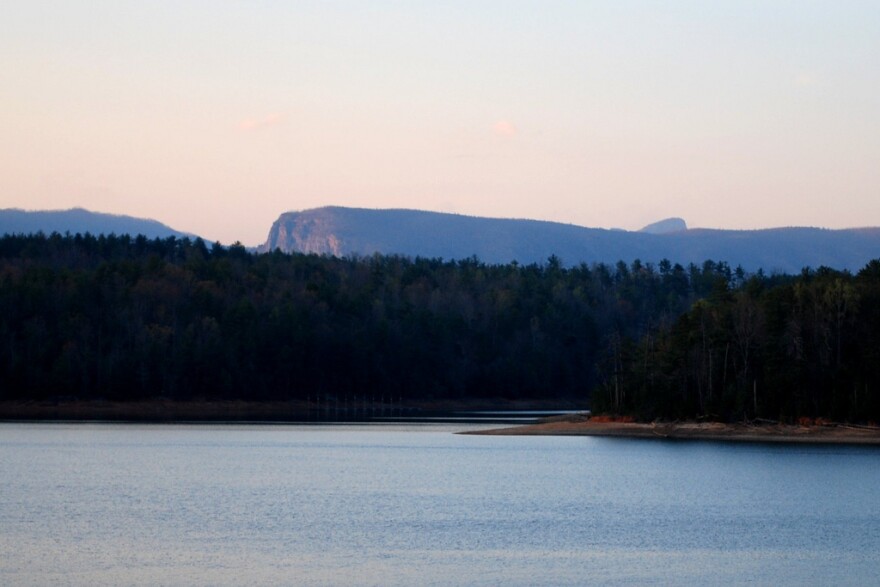Almost two million people in the Carolinas rely on the Catawba River, or the Wateree River, which it becomes in South Carolina. This week, the region’s water utilities released what they call the most significant plan for the Catawba’s water supply since reservoirs were built in the early 1900s.
Charlotte-Mecklenburg Utilities Department director Barry Gullet explains the problem the plan seeks to address.
“By the middle of this century, if we kept doing things the way we were doing them, we wouldn’t be able to attract new people to this area,” Gullet says. “Because there wouldn’t be enough water to connect them, and then have a reliable water supply going forward during a drought.”
The region is flush with water right now, but six years ago North Carolina was in the midst of extreme drought—the technical term. The Water Supply Master Plan projects what growth will be and how the water supply can keep up. For instance, demand from Mountain Island Lake and Lake Norman is expected to about double, to more than 300 million gallons a day.
The plan suggests more conservation efforts, recapturing water, and possibly even higher rates to deter usage. But in cases of severe drought, the water level could still get lower than the pipes that tap it as a source. So, the plan recommends lowering those pipes.
Catawba Riverkeeper Sam Perkins disagrees with that suggestion.
“When you’re gaining weight, you don’t necessarily need to keep buying larger pants,” says Perkins. “You need to reduce your consumption—which this plan does some of, but it does it completely through public water service utilities. An equal piece of the pie for consuming water is Duke Energy.”
Duke’s power plants account for about half of water usage from the Catawba.
The Riverkeeper argues the company should reduce its consumption during drought. Gullet counters that, in such a scenario, Duke has to reduce the water flowing through its hydroelectric dams.
In general, the environmental group is complimentary of the plan and its goals. But, there are other water management disputes, including how low water levels could affect recreational use of the lakes, Duke’s participation in the plan’s development, and environmental groups’ exclusion.
The next step is shopping the Water Supply Master Plan to lawmakers and the public, and Gullet says changes are not just possible, they are expected.

